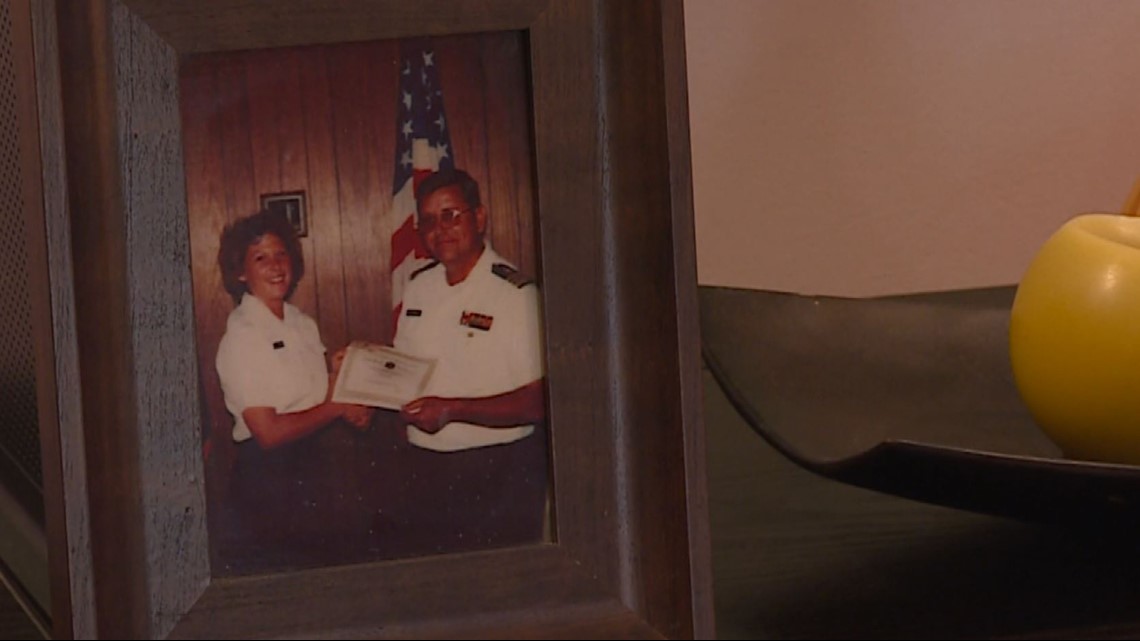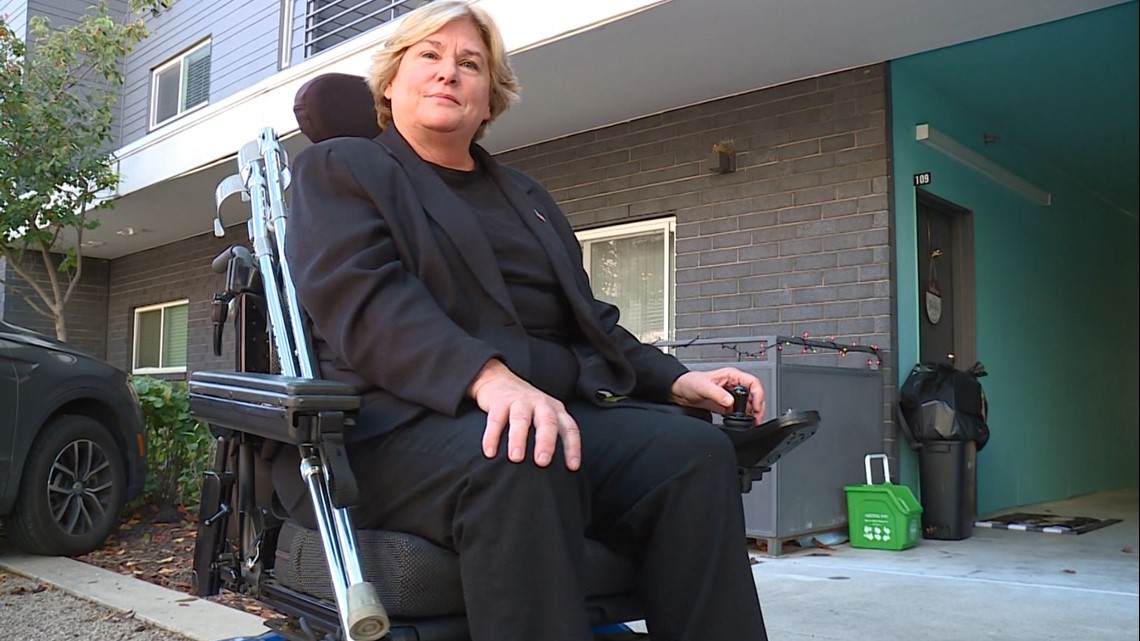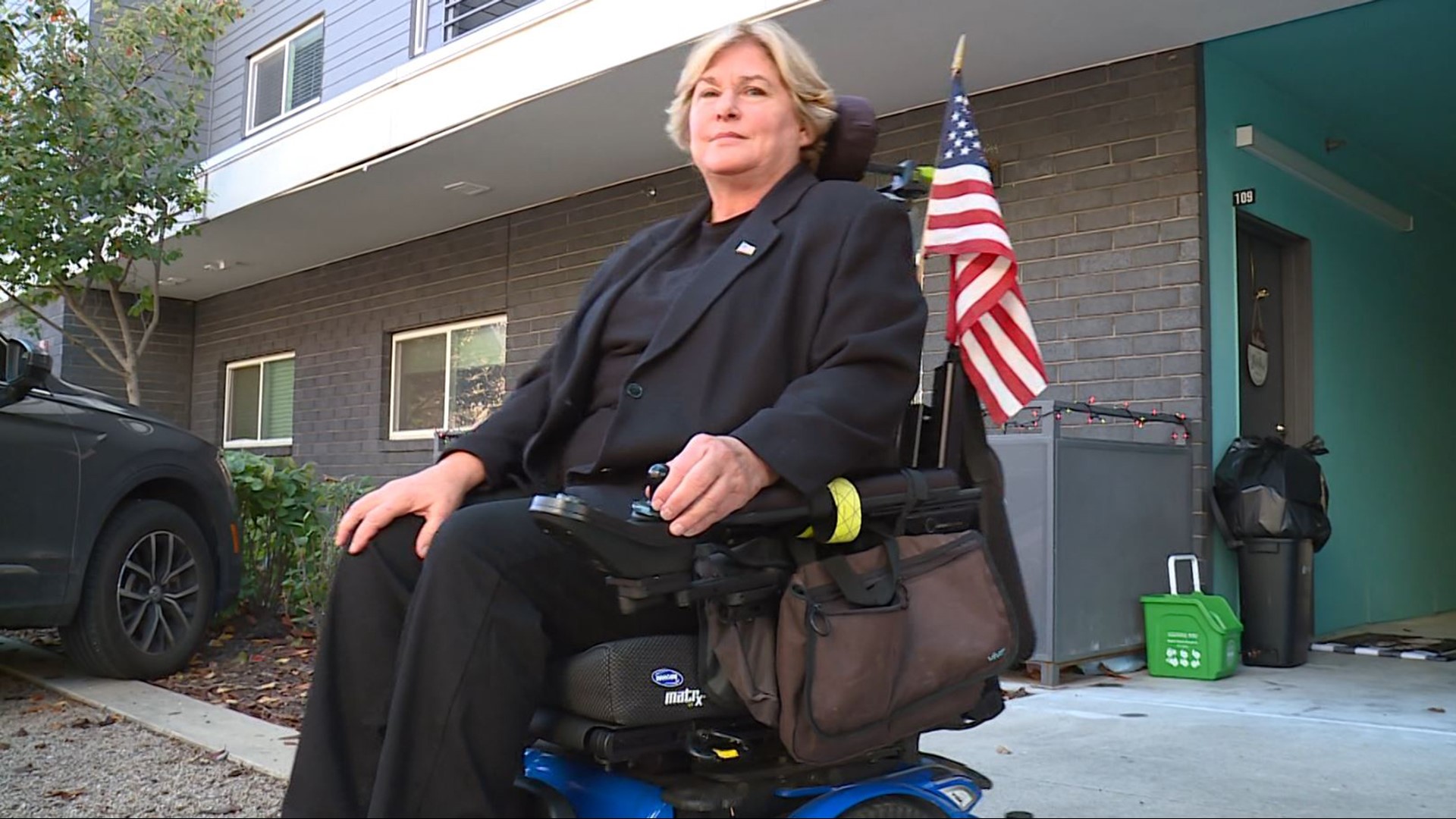FAYETTEVILLE, Ark — A Fayetteville Navy veteran shared her world of alternative medical treatments to relieve pain, post-traumatic stress disorder (PTSD), lupus, and other ailments.
She says some of it has helped, but it’s not all covered by the United States Department of Veterans Affairs (VA).
Kay Kitterman was once in peak physical condition.
“I was also the first female instructor in the Navy in hyperbaric medicine, I was a hyperbaric chamber technician,” she said. “We taught pilots how to use the recognized hypoxia and use their eject from their aircraft safely.”
She says her time in the service came with some positives, but also trauma.
“I was very fortunate to learn a lot. I worked with some great people … I’m also one of those women that went through a lot of sexual trauma.”
Plus, she says she was exposed to toxic chemicals at a base and injured her ankle while playing on a military softball team.
“I never went to the VA because we were told we had no benefits,” Kitterman recalled.
A survey taken during the 1980s found that 57% of women who served in the military didn’t know they could receive Veterans Affairs benefits.


Decades later, Kay finally did go to a VA clinic in Florida for ankle surgery and treatment, but she says it didn’t help.
Now, she suffers from complex regional pain syndrome.
She found some relief for that and other health problems through alternative treatments, including low-dose naltrexone, medical marijuana, vitamin drips, ketamine infusions, and more.
“My first ketamine infusion helped me with PTSD,” Kitterman recalled. “It was 90 minutes I couldn’t believe it. It was like game-changing for me and I couldn’t believe it.”
But, it’s costing her. She now does most of her medical care and treatments at a separate clinic because she says the VA does not cover what she is looking for.
She estimates that she’s spent tens of thousands of dollars on all this over the years, even showing 5NEWS some of the bills.
“I don’t have the money to continue to do all this,” Kitterman said.


The U.S. Department of Veterans Affairs declined to do an interview with 5NEWS for this story, but sent us this statement:
“VA supports the evidence-based use of ketamine infusions for treatment-resistant depression and severe suicidal ideation. Many veterans with these mental health conditions are treated with IV ketamine annually both at VA facilities and by community providers.”
As a federal agency, the VA does not get involved in medical marijuana.
We asked the Veterans Health Care System of the Ozarks (VHSO) in Fayetteville about its support of alternative treatments as well.
They pointed us to a VA-created program called Whole Health, a system with the patient at the center.
It includes therapeutic treatments and guidance developed from studies and research of blue zones, which are areas of the world where people live long and healthy lives.
“We know now that Whole Health actually changes our DNA,” Dr. Preman Singh, the director of Whole Health at the VHSO, said. “So there are a lot of biological methods that mindfulness, yoga, healthy diet does in changing our epigenetics.”
He says that approach is producing positive outcomes for patients.
“So the positive outcomes we can see are staving off dementia, prevention of cancer, slowing of aging, or prevention of chronic diseases like diabetes, and lupus,” he said.
There’s a team of professionals involved in this program, including acupuncturists, chiropractors, massage therapists, and coaches. There are even teachers who lead veterans through art, cooking, and music classes.
"[Whole Health] doesn't ask the question 'what's the matter with you?' It asks the question 'what matters to you?" Singh emphasized.
When it comes to pain management, Dr. Candy Still—the Vision 16 pain management opioid safety prescription drug monitoring program coordinator—says the clinic has many treatments outside of prescriptions.
“We have a pain interventional physician who can do … steroid spinal injections for set joint injections, nerve blocks, radiofrequency ablations … we have dry needling, available biofeedback, alpha stem, we have gamma core, which is a new treatment that is specific to treating headaches available,” Still said.
She adds that their approach focuses on more than physical ailments.
“There’s a big psychosocial component, and you’ve got to have mental health involved with chronic pain care,” Still said.
Doctors at the VA tell us they are always looking to expand what they can offer, as long as rigorous studies and research are showing those treatments are proven to work.
As for Kitterman, she hopes speaking up about what has worked for her will inspire more veterans to do the same.
“You know, I think the VA needs to maybe study a little bit about what some of us are doing,” she said. “I’ve made it this far. I’m like Whac-a-Mole. I joke about that you knock me down and I come popping back up somewhere else.”
For veterans who don’t know where to start, the VA says it can walk you through each step.
Also, veterans can choose to have another person with them at their appointments if they’re nervous about getting care. They can even schedule a ride to and from the VA.
Watch 5NEWS on YouTube.
Download the 5NEWS app on your smartphone:
Stream 5NEWS 24/7 on the 5+ app: How to watch the 5+ app on your streaming device
To report a typo or grammatical error, please email KFSMDigitalTeam@tegna.com and detail which story you're referring to.

